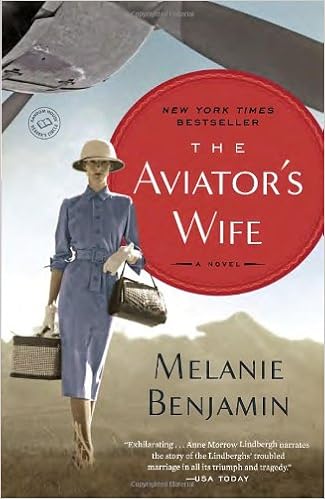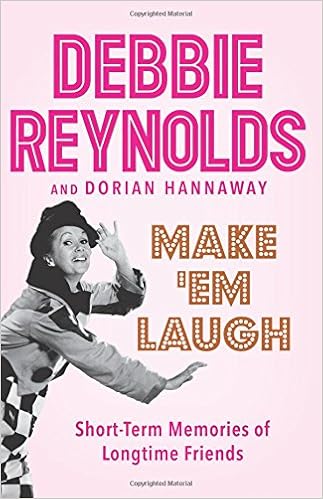The Aviator's Wife is a fictionalized book about Anne Morrow Lindbergh, the wife of Charles Lindbergh who was the first person to fly across the Atlantic on a solo flight in 1927 inside his plane The Spirit of St. Louis. This book picks up at Christmastime of that same year as Anne and her two sisters, Elisabeth the older and glamorous one and Con the cute rambunctious kid meet up with Dwight, their brother who falls, age-wise, under Anne and is breaking under the pressure of having to represent the family and live up to his father's expectations. Elisabeth is expected to marry well and have a fabulous life, but until then she is opening up a school for young kids with her childhood friend Connie. Nothing is expected of Anne except to not disgrace the family name and to marry somebody suitable at some point. Anne is basically a nobody or a non-entity in her family and she is rather introverted. The one time she tried to stand up for herself was in trying to tell her parents she wanted to go to Vassar rather than Smith, but in the end, she caved because the women in her family go to Smith. I mention these things and the year, 1927, because they are important if you want to understand Anne and why she does, or not does some things. You may become frustrated with her, but you have to put yourself in her shoes first. She is not a strong woman at the beginning of this book. If her family or Charles is the leader, she is the follower and in this life, there must be both, though you do hope she will stop being one.
It opens with Anne's family having Christmas in Mexico at the Embassy as her father is now the Ambassador to Mexico and Charles Lindbergh will be there with them because her father convinced him to do a Latin America tour in one of his planes which will promote relations with the U.S. and these countries. Charles barely says boo around them unless you get him talking about airplanes and then he will give a monolog answering whatever you asked of him still without having a conversation with you. He is especially reticent around girls. At the Christmas party, Elisabeth is paired up with Charles as she is the one expected to catch his eye and Anne is added as an afterthought. Anne barely says anything herself and lets her sister do the talking, but when her sister asks Charles to take her up on his plane, he automatically turns to Anne and asks her if she would like to go up as well. Anne gives an enthusiastic yes until a group of people comes over to see Charles and suddenly she becomes shy and unsure about going up. Later she dances with her brother Dwight, which she loves to do on the crowded dancefloor, but she ends up feeling Charles' scrutinizing gaze and believes that she has made a fool of herself in front of him and runs off to bed early. Not long after she receives a letter from Charles saying that he understands that maybe she would rather have a flight up when no one, like the press, can her go up and get her reaction, whatever that might be, and that if she wants he could take her up at four-fifteen a.m. when no one would notice. Anne is won over by how Charles understood the reason why she wobbled that night about going and meets him that morning and falls in love with flying with her first time up.
After Christmas, she goes back to college and doesn't hear from him. She invites him to her graduation, but of course, he does not come, she finds out later because he does not want to turn her graduation into a fiasco. Her mother asks her to spend the summer overlooking the building of the new house and watching over Dwight's mental health. One night, Charles calls for her and she cannot believe that he wants to talk to her and not her sister. This is a recurring theme; that he picked her over everyone else. He wants to take her up again as he promised to do so back in Mexico. Charles lets Anne fly the plane while they are up in the air, but they lost a wheel on take off which means that the landing will be a crash one. When Charles pulls up to Anne's house he gives a very odd marriage proposal. He is impressed with how she handles herself in the air and he wants her to be his co-pilot and wife. Anne is a bit shocked to get the proposal, seemingly out of nowhere, even though Charles it seems has been thinking about it over the months they have been apart. She tells him she has to think about it. The interesting thing about this proposal is that the word love is never mentioned.
Preparing for the wedding is a horror as the press is hungry for news about it. Anne has to fire a maid for selling personal letters and she has to hide her diary. Her entire trousseau is printed in intimate detail in the papers. Charles decides that the wedding will be a very small one with just immediate family only because he can't trust anyone not to sell photos or information about the wedding. There was also no official wedding photographer so she had no wedding photos. When they went on their honeymoon they went on a boat off of Florida to try to fool the reporters. After an amazing wedding night, she wakes up to a man who is demanding she gets breakfast fixed now because they are behind schedule since she slept in. Anne has no real idea how to cook, so this is something she will have to quickly learn. Charles is all about lists and schedules. He is obsessed with them. They're what got him over the Atlantic and what get him around to the various places he flies to so he depends on them. When they stop by an island to get supplies it's a relief not to be recognized. But that relief is short-lived as when they leave the store they are mobbed by people and reporters who have surrounded their boat. The only thing to do is to wait them out in the boat until the police can come and help out.
Charles insisted that Anne gets her pilot's license so he pushed her to do so and she loved flying. He also made her learn navigation, both instrumental and celestial. The celestial gave her a devil of a time. She also got her radio licence and became the first woman to get a glider plane's licence. He slingshotted her off a mountain when she was learning to fly the glider and she was utterly terrified of doing it, but she didn't want to let Charles down. In the end, she was glad she did these things, even if the way Charles went about making her do them was tedious or scary. She became his co-pilot and the two flew on many missions, including a trip to the Orient after Anne had had baby Charlie. Lindbergh was by her side the entire time talking to her and reassuring her during her labor. It was a rare gift from him.
The book does go into the kidnapping of little Charlie to a small extent (the book is about her entire life, of which this is only one part) and you get to meet Colonel Schwarzkopf, the General's grandfather, who was supposed to be in charge of the investigation, but at first everyone deferred to Charles who insisted on doing everything himself. Charles followed every crackpot lead and got involved with gangsters, which Schwarzkopf was against and that was when he and his men began to run their own investigation with Anne's permission since she knew Charles was not going in the right direction. The newly formed FBI also had men in town following leads on their own. The press and public were unbelievable. Anne was pregnant with their son Jon, then would come Land, Anne Jr (Ansy), Scott, and then spoiled daughter Reeve. After Land was born, Anne slowly stopped going on long distance flights with Charles because she could not bear to be away from the children. This is when things really began to change between them.
And once Anne could never have children, Charles was rarely around anymore, but his presence was felt in the lists and expectations he had for his kids and Anne, when he wasn't around, let things go. When he was around he could be warm with the kids and rough house with them and do sweet things for them, while being a tyrant at the same time. Everyone walked on eggshells when he was at home. He fixed up a small cabin for Anne to do her writing, but she couldn't seem to find the energy or the inspiration for it at first. Anne would help him write his autobiography that would go on to win a Nobel prize where he would thank the Wright Brothers but not her, though on the dedication page of his book he thanks her and tells her she has no idea how much of this was done by her. Anne would eventually write the, for her time, the groundbreaking Gifts From the Sea, a book of essays about the stages of women. It is considered to be a proto-feminist book and touched so many women's lives over the years. She wrote an account before this of their travels to the Orient and published her letters and diaries. She is a very talented writer for those interested.
Sometimes you are going to want to take a frying pan to Lindbergh's head. The way he treats Anne is deplorable at times. Keep in mind, though, that he does push her to do things that she would never have done otherwise, such as fly a plane and write. He believed in her and saw something in her when it seems that no one else did. Anne was looking for a hero and she got the ultimate hero, which was more than she bargained for. Anne evolves across the book and grows into her own woman. The two of them had a very hard life and sometimes the only thing that kept them connected was their need to be away from the press. The author says that the way Anne was hounded was as bad as the way Princess Diana was when she was alive. It's hard to explain how important the two of them were, the First Couple of the Air. They belonged to the world. What Lindbergh did was so unthinkable at the time and he continued to make his mark in aviation. They will look at what we would consider some horrid options to avoid the press.
This book reads like a memoir and sometimes you forget that it is a fictionalized account of someone's life. I was very interested in learning more about Anne Lindbergh as I knew she was a fine writer and that her life had been overshadowed by her husband. I was also prepared to hate Charles as I knew of his anti-Semitism. I wasn't prepared to like him a little bit. But people do have qualities we like even if they have a lot of qualities we don't. And I learned a great deal about Anne, whom I could really relate to and understand. Yes, you do want to shake her a bit and tell her to snap out of it, but you have to remember what year she was born in, how she was raised, and what her personality is. She first has to find her inner strength before she can fly on her own.
Quotes
Flying is perfectly safe. Up there on the currents, like the birds—it’s a holy thing. Nothing has ever made me feels so—so in control of my own destiny. So above all the petty strife and cares of the world. It’s down here where the danger is, you know—not up there.
-Melanie Benjamin (The Aviator’s Wife p 29)
As much as I told myself that life was no fairy tale, I had always hoped, deep down, that it was. What young girl doesn’t dream of the hero rescuing her from her lonely tower? I had been no different, only more diligent, perhaps, than others in constructing that ivory tower of my own design—a foundation laid of books, the bricks formed of the duty drilled into me by my parents; dreams may have been the paintings on my walls, but doubts and fears were the bars on my windows.
-Melanie Benjamin (The Aviator’s Wife p 45-6)
And there were good times; odd though as the years went on, the details of those lsot their sharpness, so that they became impressionistic paintings compared to the unmistakably photographic images of the bad.
-Melanie Benjamin (The Aviator’s Wife p 322)
I was Mom. I was Wife. I was Tragedy. I was Pilot. They all were me, and I, them. That was a fate we could not escape, we women; we would always be called upon by others in a way men simply never were. But weren’t we always, first and foremost—woman? Wasn’t there strength in that, victory, clarity—in all the stages of a woman’s life.
-Melanie Benjamin (The Aviator’s Wife p 340)
You need to …stop looking for heroes, Anne. Only the weak need…heroes…and heroes need…those around them to remain weak. You’re…not weak.Link to Amazon: https://www.amazon.com/Aviators-Wife-Novel-Melanie-Benjamin/dp/0345528689/ref=sr_1_1?s=books&ie=UTF8&qid=1469804737&sr=1-1&keywords=the+aviator%27s+wife+melanie+benjamin
-Melanie Benjamin (The Aviator’s Wife p 341-2)









